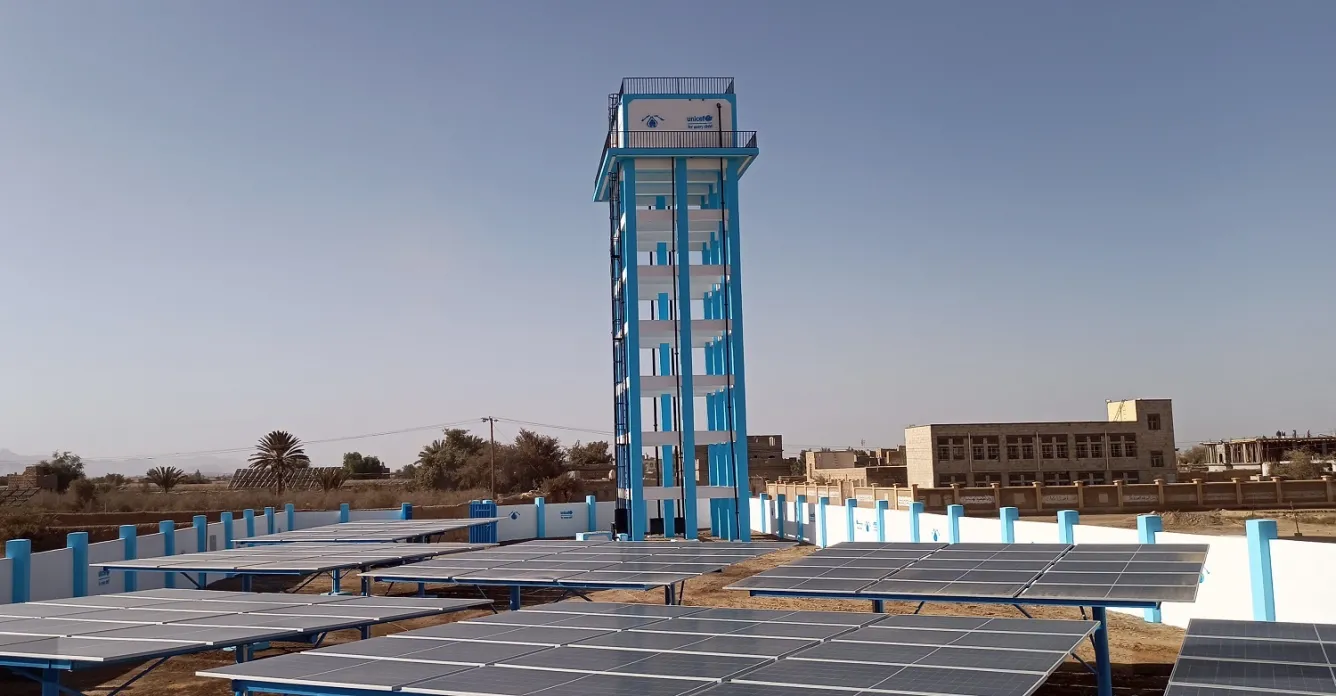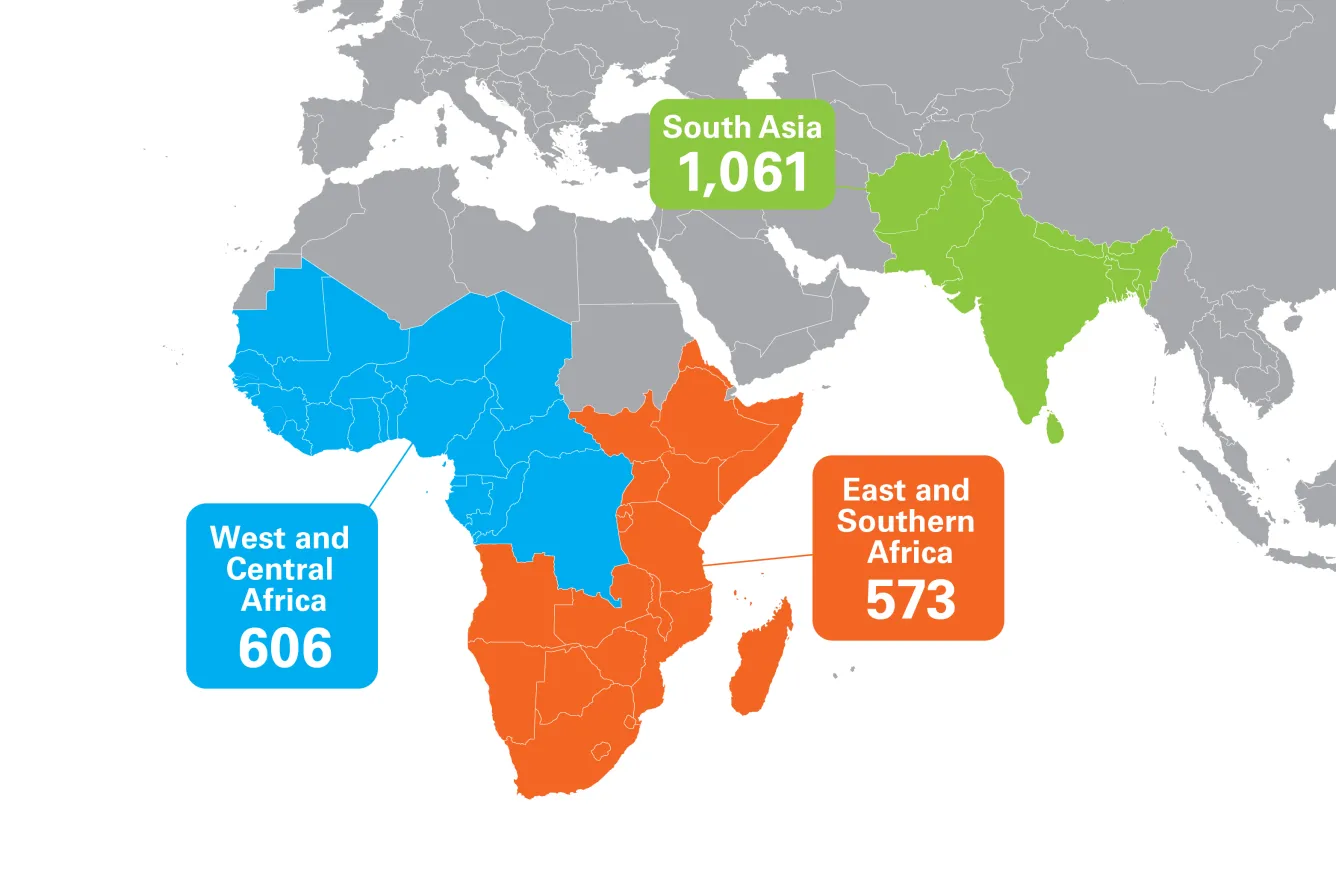Solar-powered water systems improve access to safe water
Globally, an estimated 785 million people do not have access to basic drinking water. This means they must rely on water sources like rivers or lakes – prone to contamination – or travel more than 30 minutes to collect drinking water.
But solar-powered systems can vastly enhance the quality of water, improving the health, development, safety and livelihoods of children and their families. They are more reliable than other pumping systems, tap deeper groundwater and are significantly less costly in the long term.
Unlike traditional handpumps, solar-powered pumps can be used for water storage and can supply water for multiple purposes, making water available to a larger population.
How do solar-powered water systems work?

The innovative solar-powered water system uses light energy to pump safe water up from deep below the earth’s surface. The water then flows into a large storage tank which stores enough water to supply entire communities. These systems reduce walking and waiting times, and can make water readily accessible to schools, healthcare facilities and entire communities.
UNICEF is installing solar-powered water systems around the world

UNICEF, with the help of our donors and partners, has been installing solar-powered water systems to bring safe and clean water to children and families around the world. Since 2019, UNICEF has helped install more than 8,900 solar-powered water systems in 56 countries with plans to expand to even more regions.
